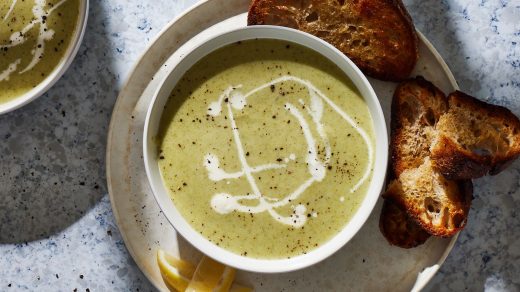In Sítio do João Cavaleiro, a few minutes from the centre of São Brás de Alportel, there is a small 25sqm and two-metre-high greenhouse where a unique and pioneering method of production is being used.
Around 30 species of microgreens – small and incredibly healthy versions of edible plants – are being grown using aquaponics – a form of sustainable and 100% organic agriculture which combines aquaculture (producing fish in a closed environment) and hydroponics (growing plants without soil).
“I had an urge to do something on my own, and then a friend introduced me to the world of microgreens,” IT specialist Nuno Clara, 32, told Barlavento newspaper.
As he explained, growing microgreens does not require a lot of space or a great level of production to be profitable.
“At the start, in 2019, my goal was just to make some extra income, but as I gained more knowledge, I realised that I could make a difference. That’s when I started researching new ways to produce using more sustainable materials. The idea was to present a product that was different,” he said.
Thus, the brand ‘Nuno Clara Microvegetais’ was born.
“I started producing using hydroponics – plant roots feed from a water and nutrient-based solution – and mats made with coconut fibre, which are of Italian origin and are natural and biodegradable. Microgreens would grow cleanly and healthily, but the results weren’t what I wanted,” said Nuno, adding that he wanted a means of production that used as little water as possible.
That is when he discovered aquaponics. But what is aquaponics?
“It uses a tank with water and fish. As the water is rich in nutrients due to the fish, it provides a natural fertiliser for the plants, and it is the plants which purify and clean the water to ensure the well-being of the fish. Explaining it very succinctly, it is as if it were a lake,” Clara said.
He added that it is a simple process which requires very little water because the water is always the same as it is constantly filtered and kept clean by the fish and plants.
Inside the tank are four goldfish. According to Nuno, there are several species that adapt well, but “these have the advantage of being very resistant”.
“I mustn’t forget that, with this system, I am responsible for both the plants and the fish. The environment must be good for both. It is a balance that must be respected, because if there are not enough plants to clean the water, the fish will end up dying,” he explained.
That is another reason why preservatives, pesticides and herbicides are not used in the production process.
Microgreens are seedlings of edible plants which are harvested at the start of their growth.
“This is the most nutritious phase of the plant, which contains between four to 40 times more nutrients than during its adult phase. They are rich in vitamins E, C and K, amino acids, enzymes, chlorophyll, and antioxidants. In other words, they help maintain immunity and lower cholesterol and blood pressure. Since I produce them organically and sustainably, the benefits are even larger,” he said.
According to Nuno, microgreens can be used in anything from sandwiches and salads to soups, smoothies as well as to decorate dishes.
Around 30 varieties are produced: peas, coriander, cabbage, mizuna, purple radish, sorrel, leek, salsa, sunflower, watercress, arugula, basil, amaranth, nasturtium, chia, red clover, wheat, alfalfa, borage, lentils, mung bean and red shiso, among others.
Among his main clients are chefs, restaurants, hotels and private customers, mostly vegans and vegetarians.
For more information, contact Nuno Clara.
+351 918294787 | nuno.clara@gmail.com
Original article written by Maria Simiris for Barlavento newspaper
March 24, 2022 Edition






